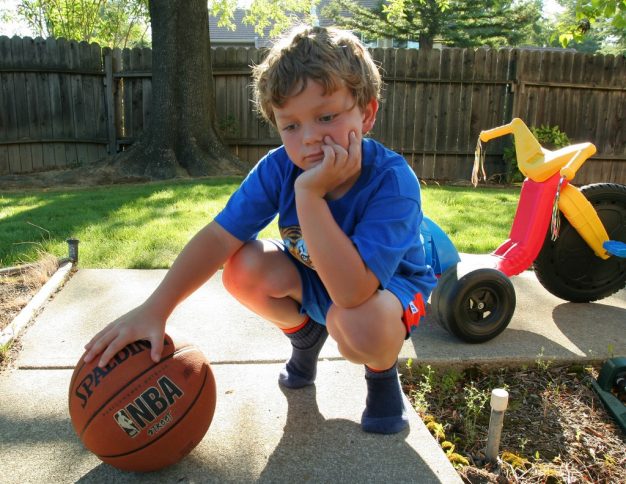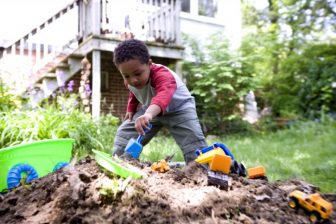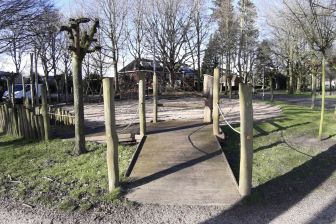
Children develop better when you let them be bored, psychologists say
It’s summer time. If you have school-aged children who are currently on summer vacation, you have undoubtedly heard “Mommy (or Daddy), I’m borrrrred,” a million times already.
Boredom in children is common and something that every parent, teacher and sane adult wants to avoid. We’ve all heard the old saying: “An idle mind is the devil’s workshop.” So we expend time, energy, and lots of cash trying to ensure that our child’s mind doesn’t become the devil’s place of business.
But research shows that constructive boredom in children is essential to their mental and emotional development. However, kids need the guidance of parents or other adults if their boredom is to be constructive and lead to creativity.
Researchers Karen Gasper and Brianna Middlewood, of Pennsylvania State University, found that constructively bored individuals seek out and engage in satisfying activities—much like happy people do. In an interview with Fast Company, Gasper says:
“Boredom operates similarly to feeling happy or excited. It results in you trying to approach something that, in this case, is more meaningful or interesting. It encourages people to explore because it signals that your current situation is lacking so it’s kind of a push to seek out something new.”
Benefits of boredom in children:
Boredom fosters creativity
Researchers all agree that the number one-benefit of children experiencing periods of boredom is that it develops their innate ability to be creative.
Dr. Teresa Belton, visiting fellow at the University of East Anglia, focuses on the connection between boredom and imagination. She told the BBC that boredom is crucial for developing “internal stimulus,” which then allows true creativity.
Operating under the notion that children should be constantly active could hamper the development of their imagination.
The popular belief that boredom is bad and potentially detrimental is the result of numerous past studies which reported that people with “boredom proneness” lack excitement and are easily frustrated. But recent research finds that being bored promotes creative association and pushes one to find deeper meaning and satisfaction.
It’s also important to remember that there’s a big difference between a negatively numbed brain and a constructively bored mind. Constructive boredom stimulates creativity. Constructively bored kids eventually turn to a book, or build a fort, or pull out the paints (or the computer art program) and create.
Boredom helps develop a sense of identity
Psychologists and child development experts suggest that over-scheduling children is unnecessary and could ultimately keep kids from discovering what truly interests them. In an interview with Quatrz, child psychologist Lyn Fry said:
“Your role as a parent is to prepare children to take their place in society. Being an adult means occupying yourself and filling up your leisure time in a way that will make you happy. If parents spend all their time filling up their child’s spare time, then the child’s never going to learn to do this for themselves.”
Lack of things to do can spur kids to engage in and try activities they would not, under other circumstances, have experienced, such as learning a craft or to bake cakes or to engage in an interesting DIY project.
So, what do you do now that it’s summer time, the kids are complaining that they are bored and you don’t want to over-schedule them or fill their time with activities you’ve chosen; but you have the type of kids who shouldn’t be left completely to their own creative devices?

Here are some ways experts say can help you create a nurturing environment for constructively bored kids:
1. Create a list of things to do
Sit down with your child and help them brainstorm a list of all the things they enjoy doing. These can be basic activities such as playing cards, reading a book, or going for a bicycle ride. They could also be more elaborate ideas such as cooking a fancy dinner, putting on a play, or practicing photography. When your child complains of boredom, have them look at the list and find something they would like to do. Just make sure you don’t pick for them.
2. Have designated play areas designed specifically for kids
When kids are in a play environment created for them, they are more likely to create their own games when they get bored. These areas could be inside or outdoors.
3. Periodically structure some unstructured time for kids
Unstructured or “free” time is a great way to ensure that you are building in time for children to entertain themselves and engage in activities that they choose.
4. Encourage outdoor play, especially in a nature
Research shows that when children play in natural play spaces, they’re far more likely to invent their own games than in more structured settings — a key factor in becoming self-directed and inventive both as children and later in life.
Author: Denise Hill reblogged from LifeHack
Photo credit: LifeHack





Many critics of a traditional school year say a long summer causes children to get bored – as if it is a negative. I love how this article discusses the value of boredom and teaches us how to create a nurturing environment for our kiddos!